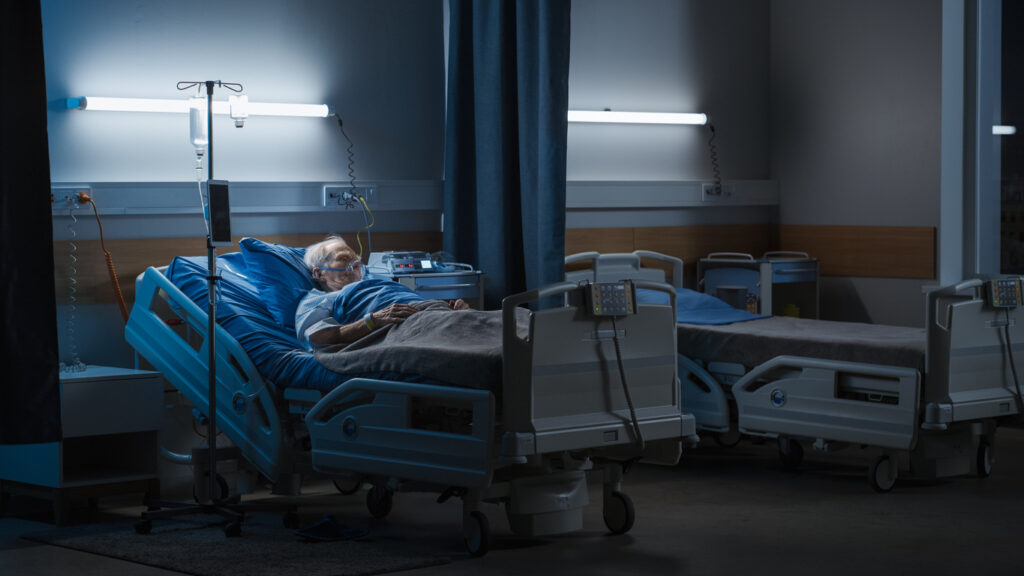Politicians don’t like to talk about the pandemic much these days. This wasn’t always the case and, up until quite recently, the UK’s response was regularly celebrated as a kind of national triumph, a timely reminder of the indomitable spirit, ingenuity and fortitude of the nation.
For instance, speaking in the immediate aftermath of the first Covid wave (and before the horrors of the resurgence of the virus that winter), Boris Johnson thought that the pandemic might actually bring benefits, suggesting that ‘though the UK will be changed by this experience, I believe we can be stronger and better than ever before. More resilient, more innovative, more economically dynamic, but also more generous and more sharing’. And, hard as it is to believe now, for a time it seemed as though this would be the way in which the pandemic would be remembered.
Of course, then came the Partygate revelations and subsequent fallout, culminating in Johnson’s resignation, after which many politicians have, perhaps understandably, chosen to treat the pandemic a little more caution. These days it is barely a topic of political discussion at all (Rishi Sunak has only mentioned Covid four times in the Commons this year, Keir Starmer only once).
It’s only really possible to discard the memory of Covid 19 in this way if you’ve had no direct experience of the pandemic frontlines. This is, of course, how most of the country went through the pandemic, with the reality of what was going on hidden away in hospitals and care homes. For many of the people who did serve, however, the disappearance of the pandemic from public discourse has been nothing short of jarring.


This week has seen the broadcast of a series which has the potential to change this. Breathtaking, ITV’s bracing mini-series dealing with the NHS frontlines in the early part of the pandemic, pulls no punches in its account of what happened. Based on Dr Rachel Clarke’s memoir, it provides an unflinching narrative of the early stages of the pandemic, for the first time presenting the wider public with an first hand perspective on the Covid response that is genuinely informed by frontline experiences. In doing so it has the potential to have a lasting impact on the way in which the wider public understand the pandemic response, in itself a critical contribution. However it also raises some inconvenient facts for politicians who would rather brush Covid-19 under the carpet.
First, let us be clear, Breathtaking is not an easy watch. It is a bleak and powerful show and its power lies in its willingness to confront us with the truth. Everything we see on screen actually happened to a medical professional during the pandemic. And so viewers are faced with the reality of what it was like to treat the first Covid cases up close, with claustrophobic camera work placing us centre stage. What we see is chaotic and scandalous, the camera unfalteringly following exhausted medics as they move from one hopeless case to the next, struggling to find PPE, running out of Oxygen for their patients.
This hits home because Breathtaking is no mere drama but instead an authentic representation of what it was like to be involved in those first, uncertain stages of the pandemic. There are scenes here which will resonate exactly with the experiences of any of us who worked the frontlines. It’s impossible to watch, for example, Joanne Froggatt’s character Abbey returning home from a harrowing shift, only to have to refuse hugs from her children, without thinking: ‘Yes! That happened to me! That’s exactly what it was like!’. In the second episode, one of the main characters is stunned at the thought of having to make a will (mine was signed by my neighbours, over the garden fence), later we see medics awkwardly watching the crowds applaud on Thursday nights from the sanctity of a darkened room (I too hid inside while my family and the rest of our street clapped and banged pans), and of course, so many other, unspeakable things.
Were this the only impact of the show, in bearing witness to these things to a public largely shielded from the reality of the frontlines, Breathtaking would be performing a valuable service. But there is something else.
In stark contrast to other attempts to dramatise the Covid response, there is no ridiculous jingoism, no attempt to mask the reality of what happened. We see the chaos as it truly unfolded. At one point, a doctor realises the hopelessness of the situation, saying of the Government response, ‘there’s no plan. They’re just making it up as they go along’. After watching this, the wider public might well come to the same realisation.
The real contribution of Breathtaking is that it shows that the pandemic’s true scandal didn’t take place in Downing Street, or at any of the parties that were held while most of the country was diligently following the rules. But was instead played out in hospitals, in the back of ambulances, and continues in the ongoing crisis across the NHS.
This is the political problem it presents. The kind of soul-searching over the memory of the pandemic that Breathtaking prompts doesn’t really have a place in the pre-election plans of either of the main parties. The Conservatives, in particular, would rather the public were not reminded of the moral vacuum at the heart of government during that time, nor of the more extreme voices in the party who would minimise the seriousness of the virus (and question the safety of the vaccines developed in response). They would rather we simply forget and move on.
But Breathtaking doesn’t allow that. Watch it. Don’t look away.
Politics.co.uk is the UK’s leading digital-only political website, providing comprehensive coverage of UK politics. Subscribe to our daily newsletter here.












